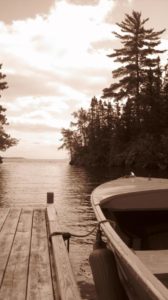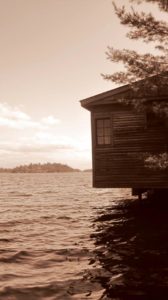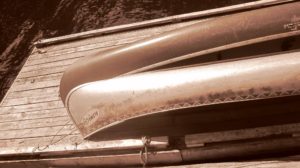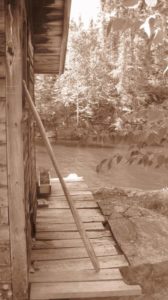 Four years ago I spent a long weekend in a Reno conference room as one of five panelists charged with evaluating grant applications for the Nevada Arts Council. Dan was a fellow panelist and jazz pianist. He and I sparked when we heard ourselves voicing similar language to publicly register our thoughts about the applicants. After tedious days of haggling and horsetrading, Dan and I segued into animated philosophical conversations about beauty, truth, art, music.
Four years ago I spent a long weekend in a Reno conference room as one of five panelists charged with evaluating grant applications for the Nevada Arts Council. Dan was a fellow panelist and jazz pianist. He and I sparked when we heard ourselves voicing similar language to publicly register our thoughts about the applicants. After tedious days of haggling and horsetrading, Dan and I segued into animated philosophical conversations about beauty, truth, art, music.
Dan spoke about a six-night retreat he was curating that summer on a remote, one-acre island in the waters between Minnesota and Canada. The island is called Mallard. It’s the former home of Ernest Oberholzer, a Harvard-educated polymath with passionate interests in conservation, exploration and storytelling. We’ll discuss jazz and poetry, Dan said. We will read and canoe. There will be only 12 of us on the island for a week, and all that is asked is that we abide by the credo of living lightly and finding spiritual sustenance in the natural world.
He said he thought I might feel at home.
 Feel at home. How exactly does that happen? What is the mutable pixie dust recipe that imbues a place that is not my home to feel as if it is? Beyond the bottom-of-the-pyramid needs for shelter and safety, what evokes that honeyed hum I expect from anywhere I’ve called home?
Feel at home. How exactly does that happen? What is the mutable pixie dust recipe that imbues a place that is not my home to feel as if it is? Beyond the bottom-of-the-pyramid needs for shelter and safety, what evokes that honeyed hum I expect from anywhere I’ve called home?
Mallard is a half mile from the Canadian border and sits in Rainy Lake, a large freshwater body partially encompassed by Voyageurs National Park. Oberholzer, or Ober as he was called by mostly everyone, lived on Mallard for 50 years collecting and constructing a menagerie of wooden buildings that are organic companions to the pines and cedars and oaks. There is Cedar Bark, a clapboard houseboat that was once a floating brothel servicing regional loggers. Book House is a former boathouse that is the nexus for the 11,000 books in Ober’s collection dispersed around the island. The Bird House is a three-story aerie with a map room on the bottom floor. Inside the Big House, where Ober lived, his desk looks as if he stepped away from it earlier in the day. A footpath down the spine of the island wends through blueberry fields, electric green moss patches and a thicket of lilac bushes.
Ober was born 132 years ago, grew up fatherless in a middle-class Iowa home and went to Harvard to study landscape architecture. A doctor there told him that the rheumatic fever he suffered as a child would kill him before he graduated. He is reported to have said that had he little time left to live, he wanted to do so in a canoe. He made his way to Minnesota, paddled 3,000 miles around the Rainy Lake watershed with an Ojibwe companion and lived to be 93.
 He died without a will; a foundation formed 10 years after his death and dedicates 10 weeks each summer to six-day programs for artists, environmentalists and Native American groups.
He died without a will; a foundation formed 10 years after his death and dedicates 10 weeks each summer to six-day programs for artists, environmentalists and Native American groups.
Last month I spent my third summer week at Mallard. After my initial year as part of an artists’ group, I’ve returned twice for volunteering weeks. I tend to the island as it tends to me. I garden. I shelve books. I vacuum mouse poo. I paint boats. I prune trees. With hands busy my thoughts unfold and spin and settle into new arrangements. On Mallard I’m thickened, deliberate, out of reach or need of spoken language, distilled into one channel. My mind is rested and still. Scattering thoughts throw themselves like a handful of dice before I sleep, but there they lay in their unimportance, unable to tempt my rested soul to engage.
 Every morning, still woozy from sleep so thick I go back in time, I make a quiet pilgrimage and cross the stone bridge to the Japanese House, a wooden room perched on a rock at the end of the island. With coffee and my journal in hand, I sit at a simple wooden desk and write. I hear the pleasing drone of a motorboat and the white-throated sparrows sing the island’s greatest hits. Lake water cups into the rocks beneath the house. There is nothing that I want.
Every morning, still woozy from sleep so thick I go back in time, I make a quiet pilgrimage and cross the stone bridge to the Japanese House, a wooden room perched on a rock at the end of the island. With coffee and my journal in hand, I sit at a simple wooden desk and write. I hear the pleasing drone of a motorboat and the white-throated sparrows sing the island’s greatest hits. Lake water cups into the rocks beneath the house. There is nothing that I want.
The writer Richard Ford calls home a provisional claim, a designation we make upon a place, not one the place makes on us. I disagree. I believe that home finds us as much as we seek to find it. Home shows up like a nomadic friend, returning unexpectedly, consoling and comforting, telling us stories and knitting us into a larger world. The world is righted when the feeling of home comes, and when it goes, the melancholy left in its wake is a delicious flavor of sadness.
Laura Kelly can breathe underwater, smell in Technicolor and see with her toenails. She once made a pair or pants out of cornflakes. She says that she and one of her mother’s sisters invented the tango, the shoelace and six letters of the alphabet. In her spare time she fancies languages light on vowels and origami. She’s also been a Flag resident for 12 years, worked in the trenches for the arts and is currently on a walkabout gathering inspiration to infuse into this city once she returns.

